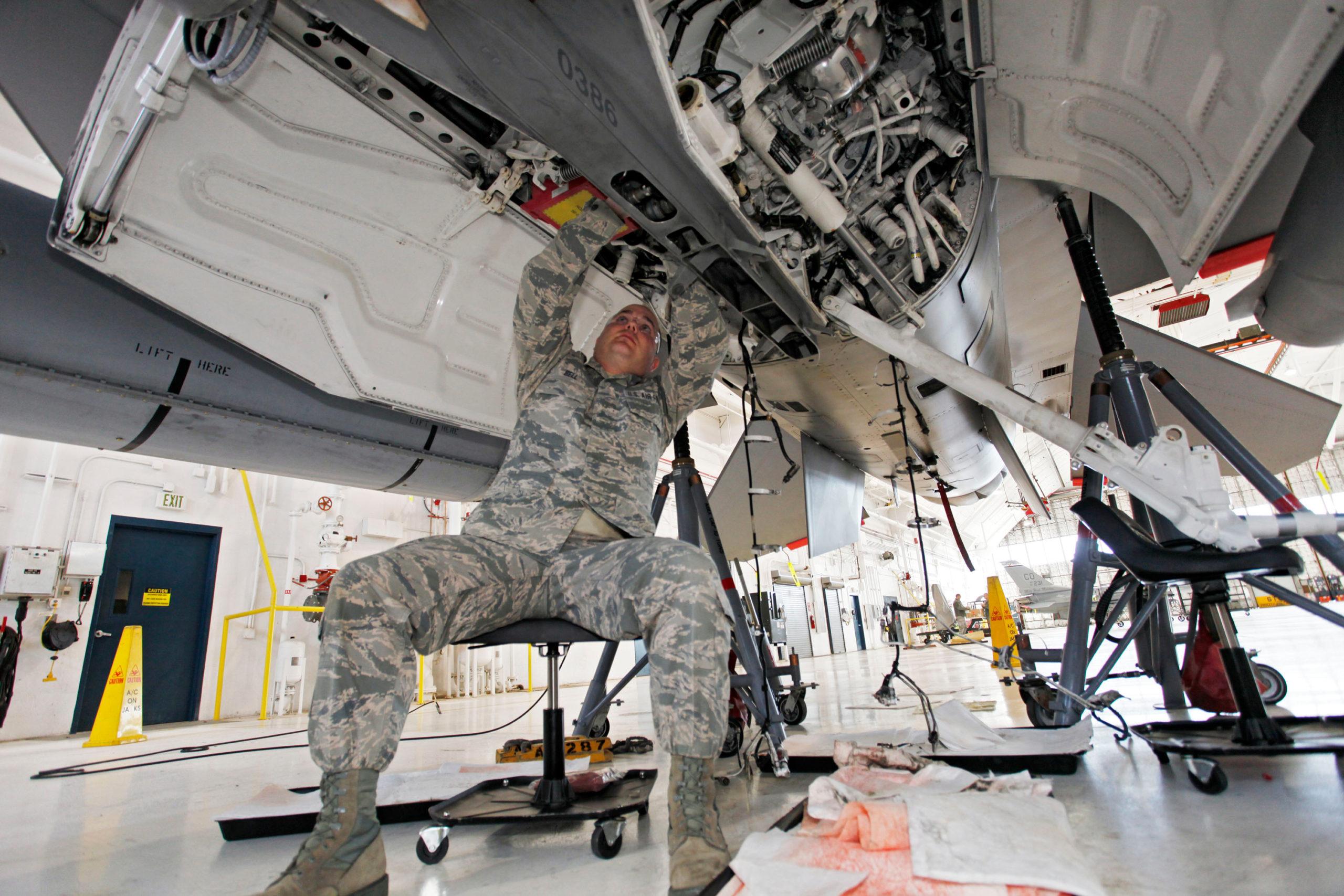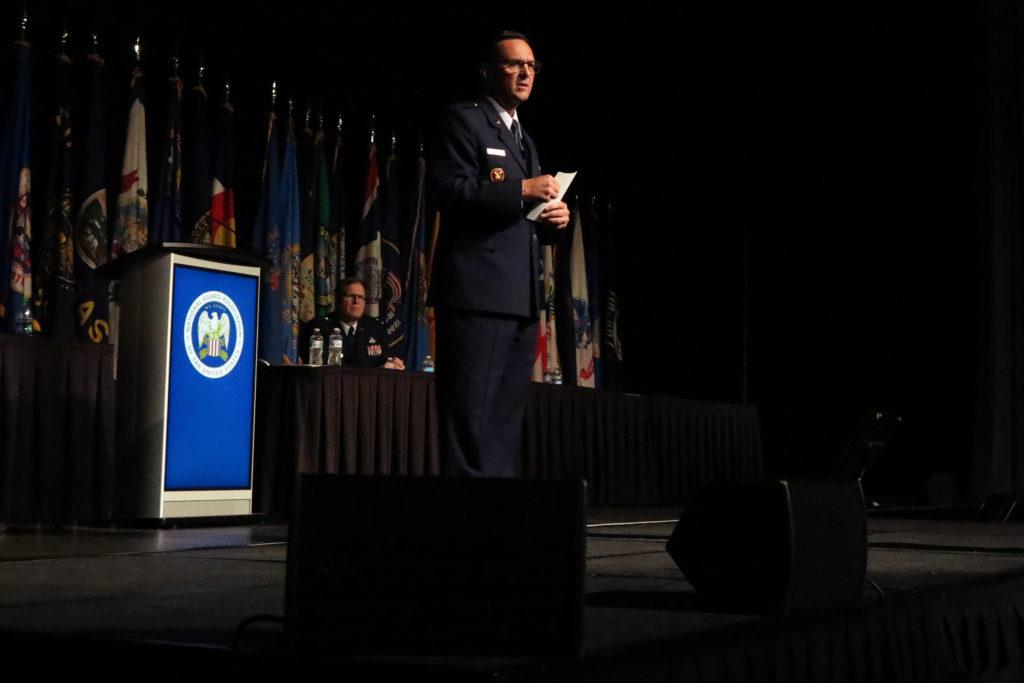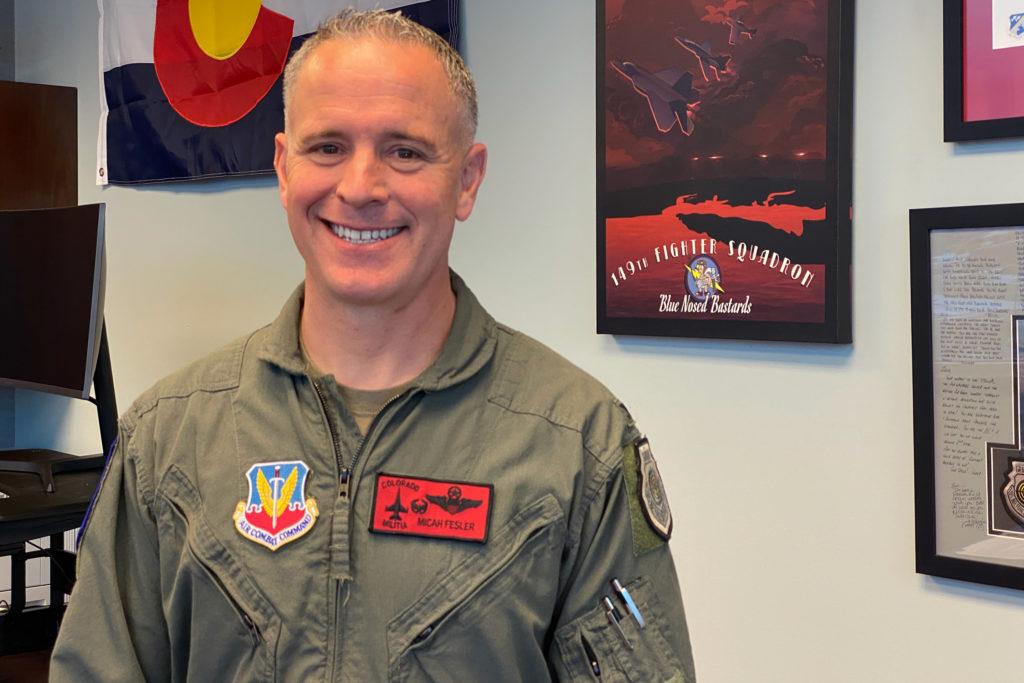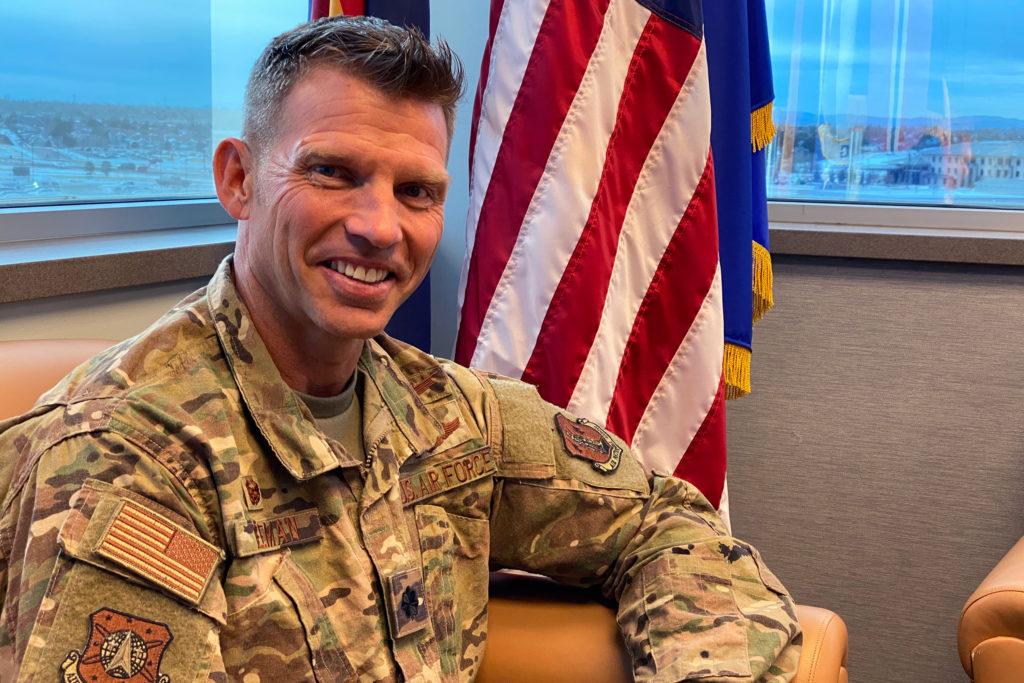
As the Department of Defense starts to fill an expanding need for space and cybersecurity professionals, it is increasingly partnering with the National Guard, the military’s part-time service branch.
This trend part of the military’s shift away from the focus on counter-terrorism it has held since Sept. 11, 2001.
“We’ve entered an era of competition, of global competition with peer competitors, mostly China and Russia,” said Gen. Joseph Lengyel, chief of the National Guard Bureau.
Lengyel was speaking at the National Guard Association of the United States annual conference, held this past summer in Denver. The event brought in representatives from Guard organizations across the states and territories.
The military shifting priorities to competition among world superpowers was a recurring theme during the multi-day conference.

The U.S. is investing more and more in high-tech fields to keep up with rivals.
“Last year, (China) graduated 8 times the number of STEM graduates that we did,” said Gen. Stephen Wilson, the Air Force vice chief of staff. “We need to stop thinking like we’re Goliath and start thinking now like we’re David.”
The military’s race to recruit more people into high-tech fields has led them to the private sector. And that’s where the National Guard comes in.
Colonel Micah Fesler, a wing commander in the Colorado Air National Guard, said the military is realizing that it needs to leverage the innovations coming out of private companies, especially in space and cybersecurity.

“We can take advantage of their expertise on the outside and use it on the inside,” Fesler said. “We can take advantage of the knowledge that they have and we can bring them in to improve our ability to transition from that Industrial Age-type warfighting to a modern-type warfighting.”
It’s a role reversal from the 20th century, when the Department of Defense would develop the technology that would inspire private companies, such as with the internet or GPS. But today technology in the private sector is moving much faster than it can through the bureaucracy in the military, Fesler said.
Recruiting top space and cybersecurity talent away from lucrative full-time private-sector jobs can be tricky for other military branches. The National Guard’s part-time nature gives those high-end professionals another option for service.
With almost half of the National Guard’s space forces based in Colorado, this technology-focused era bodes well for the Colorado Guard.

Lt. Col. James Reeman commands the Colorado Guard’s 138th Space Control Squadron. He was brought in to instill the boots on the ground mindset he learned as a former fighter pilot in his new soldiers, who spend most of their time tied to a desk and computer.
“To help these ‘space warfighters’, as we call them, realize they're not a support function anymore. They're at the leading edge, they're warfighters, they’re relevant,” Reeman said.
Air Force Vice Chief Wilson told the crowd at the National Guard conference in Denver that the Guard currently provides 40 percent of the Air Force’s offensive space capability. That number is expected to jump to 57 percent by 2021.
“Never before in our nation’s history will our nation rely on the National Guard like they do today,” Wilson said.









